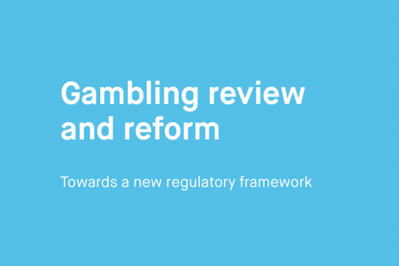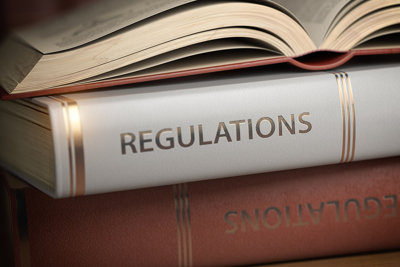 The Social Market Foundation, which describes itself as a ‘non-partisan think tank’, has released a selection of possible gambling reforms for the government to think about introducing. The report has been released ahead of the Government’s desire to introduce an ‘analogue Act for a digital age’ when it comes to the world of betting and gambling.
The Social Market Foundation, which describes itself as a ‘non-partisan think tank’, has released a selection of possible gambling reforms for the government to think about introducing. The report has been released ahead of the Government’s desire to introduce an ‘analogue Act for a digital age’ when it comes to the world of betting and gambling.
A review of the 2005 Gambling Act is due in the coming months, so the SMF is one of several groups looking to help steer the government’s thinking on the matter. Amongst the recommendations that the report makes is the idea of a ‘soft cap’ limit of £100 per month in net deposits, as well as a stake limit of between £1 and £5.
Why Have the SMF Released A Report?
The Social Market Foundation has released its report, which puts forward a number of different policy recommendations for the government to consider when it begins to update the Gambling Act of 2005. It is widely accepted that that Act was fine when it was introduced, but that betting has since evolved to the point that it is no longer fit for purpose and too much is slipping through the cracks.
This is largely because of the huge increase in online gambling, both in terms of its popularity and its profitability. It means that land-based gambling content is subject to far more control than those operating in the online market are, which is something that the SMF, amongst others, believes should be brought in line. It is generally thought that this would be sensible, given the fact that Parliament has intervened in a number of high-profile cases since 2005.
The SMF has referred to its recommendations as a ‘road map’ for the reforms of the gambling industry that are likely to be introduced in the coming months. The idea behind its suggestions is that they will create a ‘fairness in the market’ as well as an opportunity to ensure better regulation. The hope is that, moving forward, fewer people will suffer gambling related harm if the changes are introduced.
The Main Suggestions
The SMF has offered five main suggestions for the government to consider. Briefly, they are as follows:
- A regulatory framework for gambling
- A definition of what ‘gambling affordability’ is
- Restoring Confidence in the Gambling Licence
- A review of the Gambling Tax
- More controls over gambling content
We’ll look at these five main points in more detail shortly, but for now we’ll offer a brief summary of what the report is saying. In short, it is felt by the SMF that the current framework, which involves a tripartite arrangement between the Gambling Commission, the Advisory Board for Safer Gambling and GambleAware, isn’t good enough and should be replaced.
The idea of ‘gambling affordability’ is based on an analysis of the current living standards and income, with the report recommending a ‘soft cap’ of £100 a month in net deposits. When it comes to the Gambling Licence, the SMF believes that confidence in the integrity of the UKGC’s licence has been lost, meaning changes need to be introduced to restore it.
The SMF’s report is also calling for a review of all gambling taxation in order to make an assessment of whether changes need to be made. The final thing advocated by the report is an introduction of a cap on maximum stakes that can be played on online slot content. The belief is that a cap of between £1 and £5 should suffice.
1. A Regulatory Framework For Gambling
 Looking at each point in more detail, the report specifically points to the current gambling framework that is in place and believes that it should be radically overhauled. As things currently stand, the gambling framework in the United Kingdom involves the Gambling Commission working with the Advisory Board for Safer Gambling and the charity GambleAware in something of a tripartite arrangement.
Looking at each point in more detail, the report specifically points to the current gambling framework that is in place and believes that it should be radically overhauled. As things currently stand, the gambling framework in the United Kingdom involves the Gambling Commission working with the Advisory Board for Safer Gambling and the charity GambleAware in something of a tripartite arrangement.
What the Social Market Foundation recommends, however, is a new arrangement that it refers to as a ‘cross-departmental Gambling Quartet’. This would take the sole governmental responsibility for gambling away from the Department for Culture Media and Sport. The Gambling Commission would be replaced with a Gambling Licensing Authority, which would be sponsored by the Ministry Of Justice.
The SMF also recommends a new Gambling Ombudsman, which would be sponsored by the Department for Business, Energy & Industrial Strategy. It is also felt that Research, Education and Treatment should be provided by the National Health Service and Research Councils and paid for by a statutory levy. The oversight of advertising, as well as the Lottery, would remain with the DCMS.
2. What Is Gambling Affordability?
 An analysis of both living standards and incomes has led the SMF to a ‘working definition’ of what it declares to be ‘gambling affordability’. The idea behind it is to reduce the number of people who get into financial trouble because of gambling, analysing the available data to come up with a ‘soft cap’ limit that sits at £100 per month in net deposits.
An analysis of both living standards and incomes has led the SMF to a ‘working definition’ of what it declares to be ‘gambling affordability’. The idea behind it is to reduce the number of people who get into financial trouble because of gambling, analysing the available data to come up with a ‘soft cap’ limit that sits at £100 per month in net deposits.
It is felt by the Social Market Foundation that all the cap does is put an official figure on the amount of money that most gamblers are currently spending. This, the SMF believes, is a ‘socially acceptable’ amount of money to spend on gambling and will stop the money spend on gambling exceeding the ‘poverty thresholds’ that are in place for lower-income households.
3. Restoring Confidence In The Gambling Licence
 According to the report, many people have begun to lose confidence with the United Kingdom Gambling Commissions gambling licences because of how many regulatory failures there have been over the years. On top of that, cases of industry malpractice have also resulted in the ‘eroding’ of the licence’s integrity. Can the credibility of the British licence be regained?
According to the report, many people have begun to lose confidence with the United Kingdom Gambling Commissions gambling licences because of how many regulatory failures there have been over the years. On top of that, cases of industry malpractice have also resulted in the ‘eroding’ of the licence’s integrity. Can the credibility of the British licence be regained?
According to the Social Market Foundation’s report, the introduction of a kite mark for licensed operators that is mandatory would go a long way in doing so. The SMF believe that a more transparent system, particularly when it comes to regulatory sanctions, is necessary moving forward. Other sectors have a ‘best practice’ on this front that gambling will need to follow.
It is also felt that white label companies must be abolished. White label companies are ones that offer a base product that other companies can buy, rebrand and sell as their own. You could have ten different websites that all use the same base gambling product, but which appear to be different sites. The SMF believe this is part of what is eroding trust in the UKGC.
4. Reviewing Gambling Tax
 The 2014 Gambling (Licensing and Advertising) Act is the moment that the Social Market Foundation believes should be a watershed in terms of gambling tax. The report recommends that any taxation introduced since then needs to be reviewed, with an assessment made of any changes. This is specifically with reference to gambling duty charged in relation to an operator’s ‘onshore footprint’.
The 2014 Gambling (Licensing and Advertising) Act is the moment that the Social Market Foundation believes should be a watershed in terms of gambling tax. The report recommends that any taxation introduced since then needs to be reviewed, with an assessment made of any changes. This is specifically with reference to gambling duty charged in relation to an operator’s ‘onshore footprint’.
The gambling tax rules were changed alongside the move to lower the maximum stake payable on Fixed Odds Betting Terminals, with the Point Of Consumption tax moving from 15% to 21%. This was done in order to make up the shortfall that would be felt by the maximum stake dropping from £100 to £2 on FOBTs. A new definition of the minimum threshold of ‘capital, human, social, legal and digital presence’ is needed, the SMF believes.
5. Gambling Content Should Be ‘More Controlled’
 The Social Market Foundation’s report suggests that the current world of remote gambling lacks appropriate content control. A way to right this wrong, it’s believed, is by introducing limited both on the maximum stake that is playable as well as the speed of play. When it comes to online slot content, there is a ‘regulatory reality’ when it comes to stake limits.
The Social Market Foundation’s report suggests that the current world of remote gambling lacks appropriate content control. A way to right this wrong, it’s believed, is by introducing limited both on the maximum stake that is playable as well as the speed of play. When it comes to online slot content, there is a ‘regulatory reality’ when it comes to stake limits.
There is now, according to the report, an ‘established spectrum’ of stake limits, which ranges from £1 to £5. In the case of non-slot content produced by online operators, this would be impossible to adhere to. Instead, the SMF believe that limits to game design would help to impose more control whilst not making the content ‘commercially non-viable’.
What Does it Mean For The Industry?

Whilst the report is obviously well-intentioned, it’s unlikely to be received with open arms by the betting industry. For starters, many in the world of gambling believe that the industry is already too heavily monitored and regulated, so the idea of introducing even more regulation isn’t going to be a popular one.
The other thing that critics of the Social Market Foundation’s report will flag up is that people are unlikely to want to bet in such tightly regulated markets. The more restrictive the rules and regulations around gambling sites become, the more likely it is that vast swathes of bettors will simply turn to the unregulated world of offshore betting sites.
There are numerous reasons why this would be a problem, not least of which is the fact that unregulated sites offer no protections to the players. Sites that don’t look to gain a licence from the United Kingdom Gambling Commission are unregulated, so there will be no recourse for punters who feel cheated. It will also result in a large drop off in taxation, which would hit the government hard.



